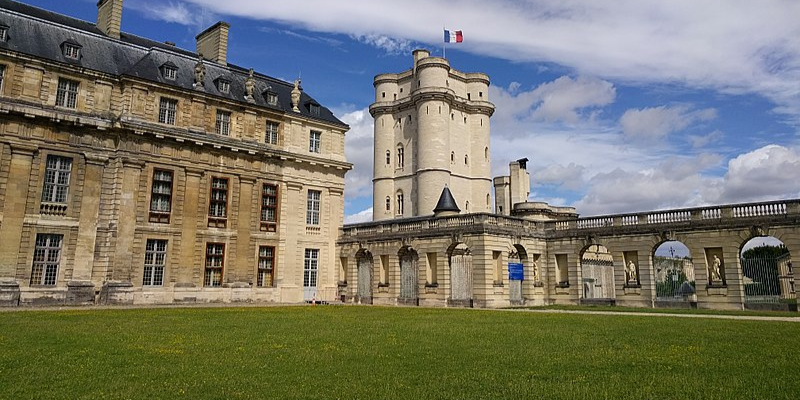Research project
Crime, Punishment and Colonial Soldiers
- Start date: 1 January 2021
- End date: 31 December 2022
- Funder: Gerda Henkel Foundation
- Primary investigator: Professor Claire Eldridge

Description
On 24 October 1916, following intense fighting, French troops re-captured the symbolically significant Fort Douaumont at Verdun. This important, morale-boosting victory was crucial in bringing to a close the epic and immensely costly Battle of Verdun. That same month, the 45th Infantry Division, whose regiments had been heavily involved throughout the Battle of Verdun, accused soldiers Louis Martin-Brachet and Louis Solary of desertion, found Abraham Marciano guilty of abandoning his post, charged Joseph Bottari with threatening his superior officer, and sentenced Ali ben Abdallah ben Salah to one year in prison for assault. As this shows, the bravery, valour and sacrifice of the 8.4 million soldiers who served in the French Army during the First World War coexisted with examples of some less than glorious behaviour.
By examining cases of military offending, this project offers a new history of the French Army during the Great War centred on questions of race, empire and criminality. It focuses on the three divisions of France’s so-called ‘African Army’ whose Algerian, Tunisian and Moroccan recruits accounted for a high proportion of the of the 437,653 colonised subjects who fought alongside metropolitan Frenchmen on the European fronts between 1914 and 1918.
This research uses crime as a lens through which to consider the implications of this unprecedented level of diversity within the French military, and the opportunities it created for interaction between men with very different racial, ethnic, religious, geographic and socioeconomic origins. By revealing tensions and conflicts, but also collaborations and solidarities between combatants, these sources offer important new insights into how this unprecedented level of diversity was navigated on a daily basis in the trenches.
The soldier’s voice
The rich and detailed French military justice archives, held by the Service historique de la Défense in the Paris suburb of Vincennes, contain 140,000 records of military trials. The ‘crimes’ these men were accused of committing ranged from the relatively minor, such as ‘causing a scandal’ in quarters or in the street while drunk, to more serious offences like assaulting a superior officer, refusing to obey an order, abandoning a post in the presence of the enemy, all the way up to rape and murder.
Yet, like all judicial sources, these records tell a far more interesting story than those collecting evidence to prove or disprove a particular charge ever intended them to. In particular, these documents preserve the voices of accused soldiers in the form of testimonies and transcripts of their trials. This gives us the opportunity to study the perspectives of people who are often absent from the historical record as actors in their own right. Military justice sources are thus rare in giving us the perspectives of both colonised combatants and the socio-economically marginalised white soldiers that they fought alongside in multi-ethnic units. By exploring, through their own voices, why such men behaved as they did, we can better appreciate the complex make-up of the French armed forces, as well as the pressures and temptations that faced soldiers in the trenches. This research prioritises the soldier’s voice and in doing so offers new insights into how race intersected with other markers of identity to structure combatant experiences during and immediately after the Great War.
Publications and outputs
Events
2-3 June 2022, Conference: ‘War Makes Monsters: Crime and Criminality in Times of Conflict’, University College, Dublin. The proceedings of the conference will soon be published as a special issue of French Historical Studies.
Publications
‘Absence, Agency and Empire: Desertion from the French Army during the First World War’, War in History, published via online first, 5 December 2022 (open access on the journal’s website)
‘Conflict and Community in the Trenches: Military Justice Archives and Interactions between Soldiers in France’s Armée d’Afrique, 1914-1918’, History Workshop Journal, 93.1 (2022), 23-46 (open access https://doi.org/10.1093/hwj/dbab031). This article was named the winner of the French Colonial Historical Society Article Prize 2023. Find out more on the news pages.
In the media
‘Stealing 99 Bottles of Alcohol: Military Tribunals and Memory Activism’, Minatures Podcast Series, Everyday Dictatorship Project, Episodes 1, 2 & 6, Autumn 2020 to Spring 2021. Available here.

